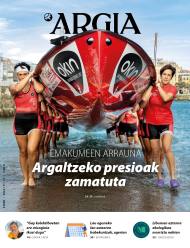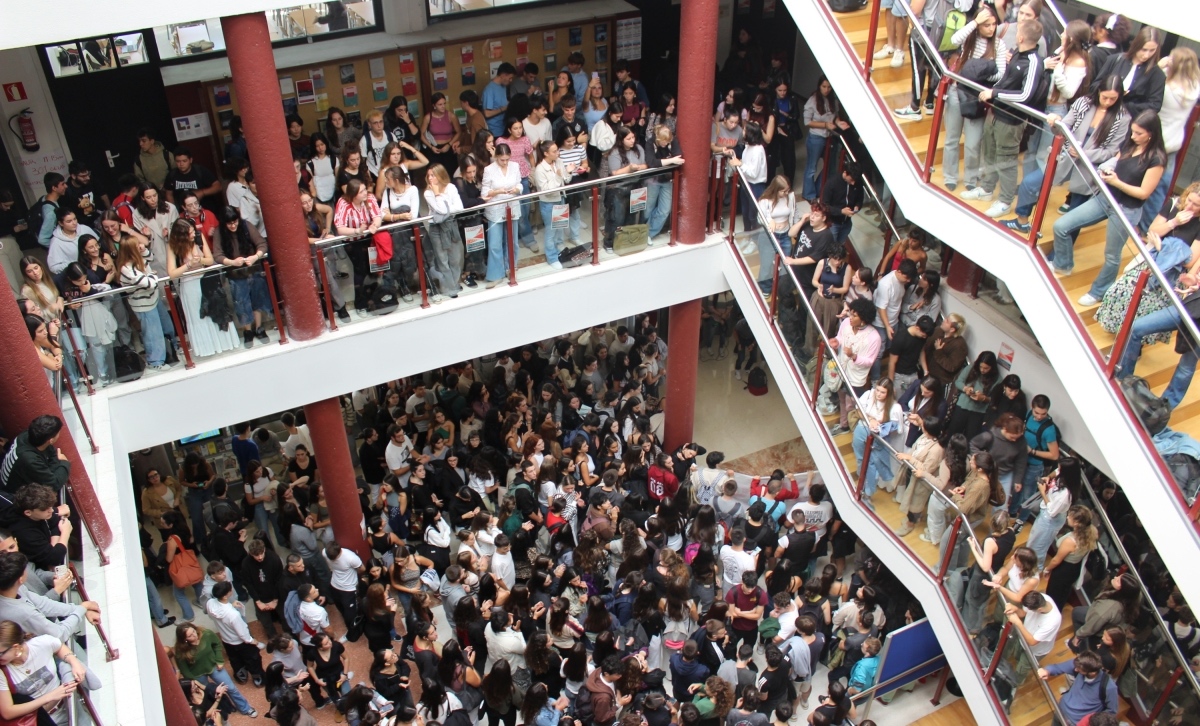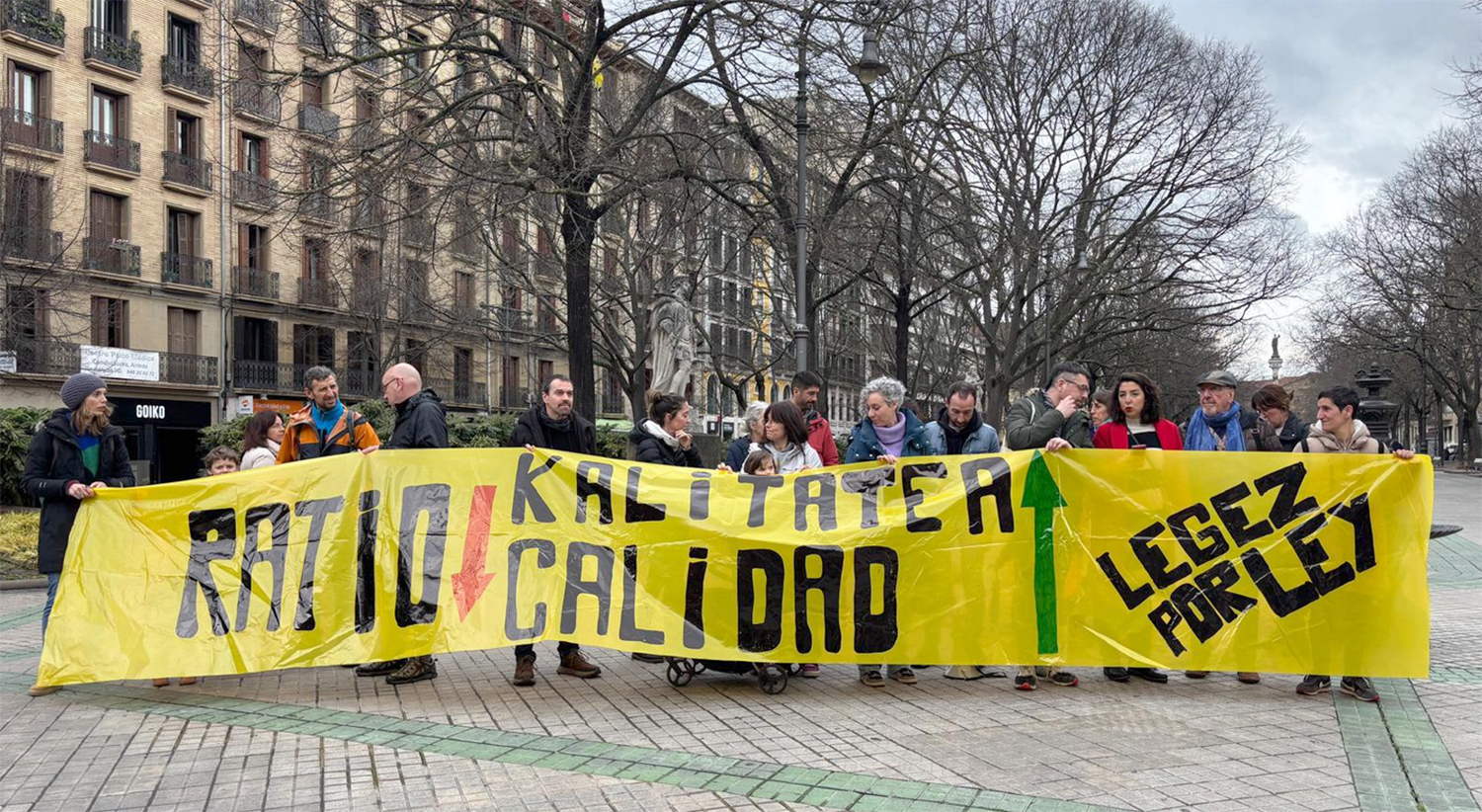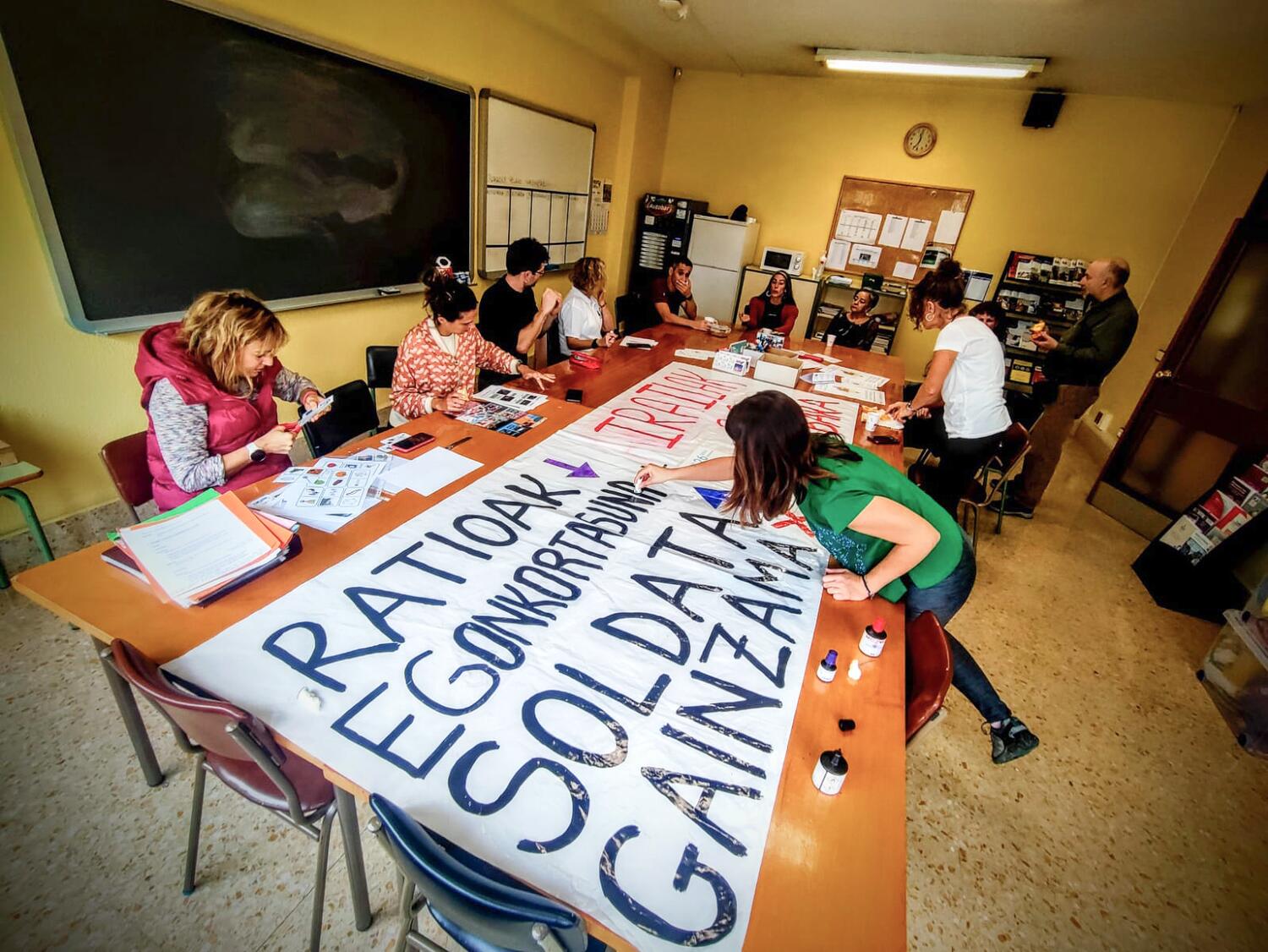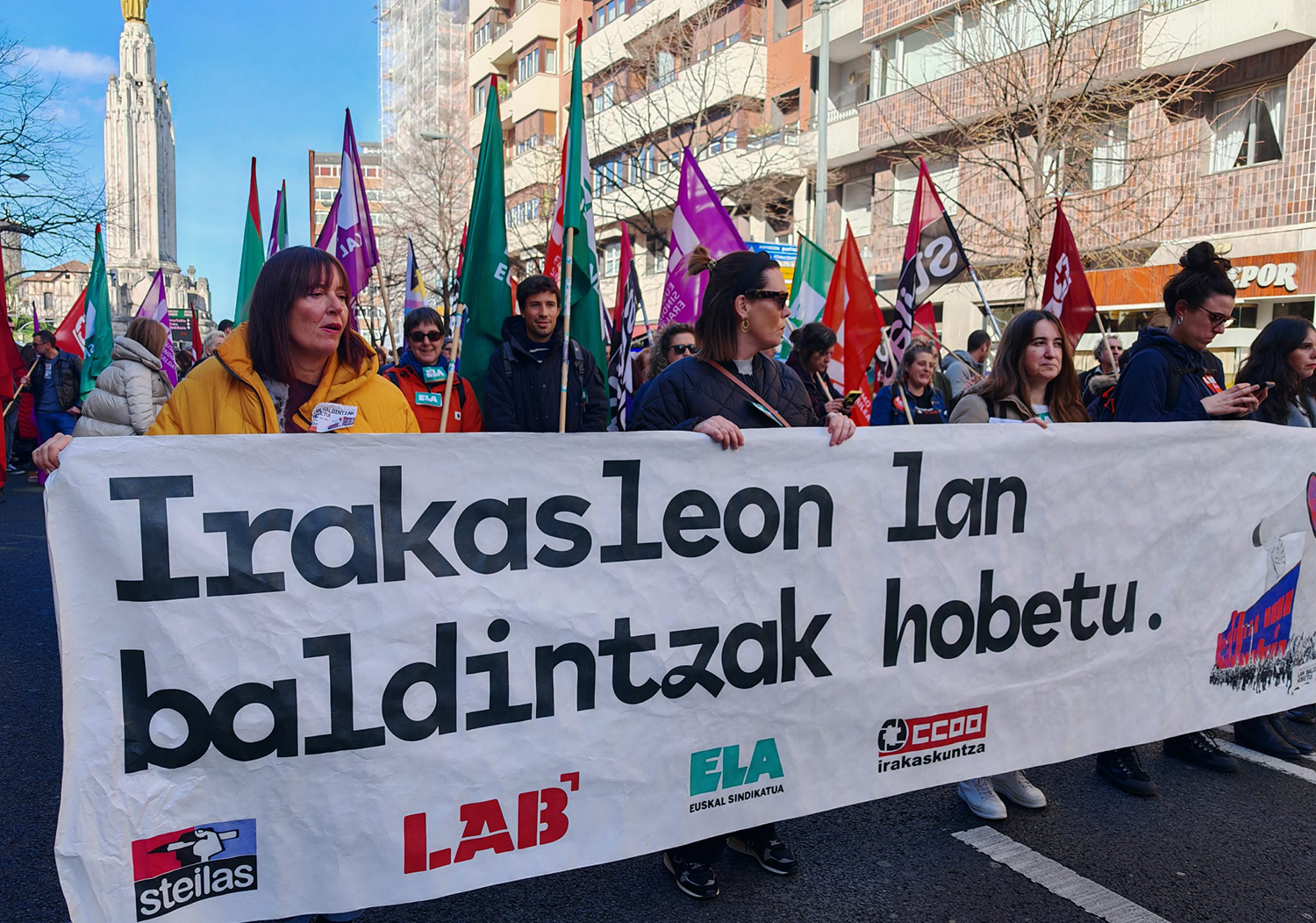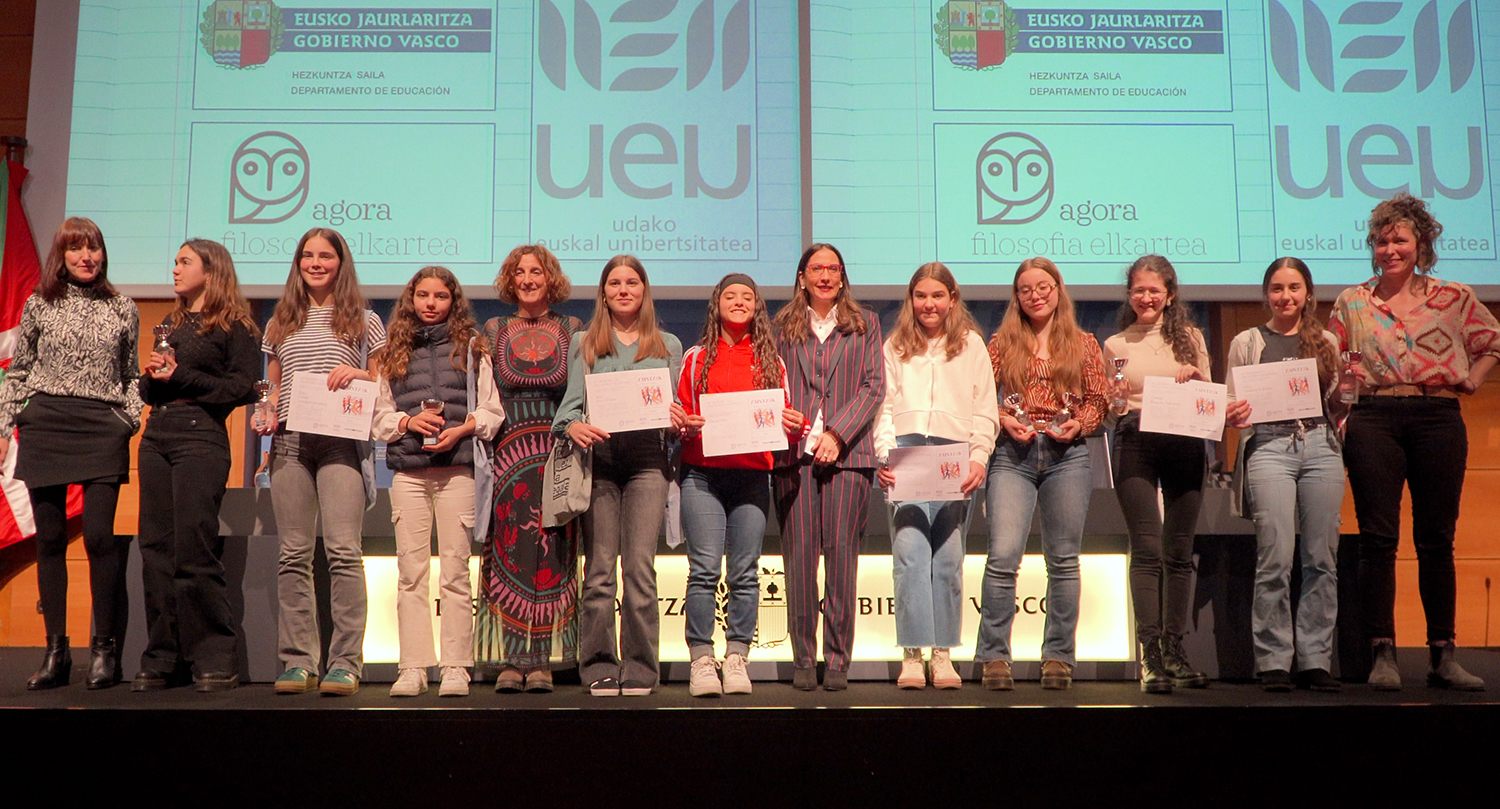Is the desire to go to the bathroom well managed in your school?
- In schools and institutes, students do not always have the possibility of going to the bathroom, when they have a scarf, a peanut, a thirst, a menstruation..., there are more flexible and rigorous rules that in some centers close toilets with a key, arguing an inadequate use. We have finished talking about the topic, the prohibitions, the control, the collective penalties, the intimacy, the motor needs and the place of bodies in school, the ways of understanding spaces (and students)...
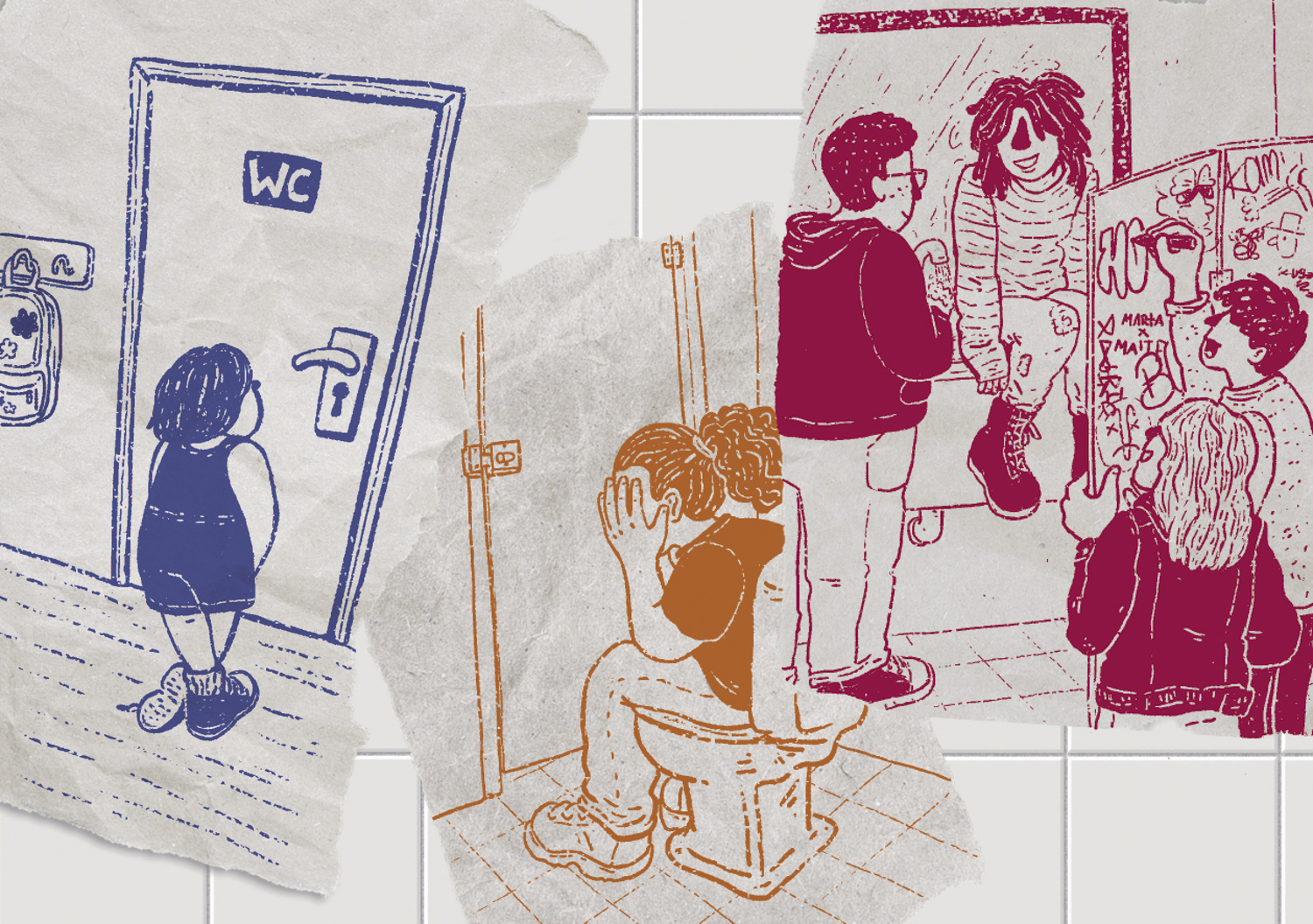
The 10-12 year-old girl appeared with her father in the pediatrician's office Maider Labari (which we changed her name), who told her that she had had previous urinary infections, as keeping her urine with this background could cause infections again, which needed written medical permission to go to the bathroom to take her to school. “I found it surreal to have to sign something like this, didn’t I have permission to do it?” Consulted by the Department of Education of the Basque Government, the following answer was received: “Of course, anyone who has to go to the bathroom has the right to go. That said, each center decides how to manage the issue with common sense.” And common sense says, in the words of Professor Agurtzane Martínez, that the satisfaction of basic needs is a fundamental element to ensure the harmonious development and well-being of the child, “and the school must ensure that these needs are met”. “If they are not satisfied, we will hardly be focused on the work and the ingenious reflections that the professor wants,” says Nora Salbotx.
What usually happens? When students are small, physiological needs are the axis of the pedagogical project, but as age increases, cognitive development and academic activity take priority, with physiological needs in second place: “Adults regulate when to respond to these needs so as not to hinder academic activity, the centrist adult perspective prevails and the spaces to satisfy them lose their educational option,” Martínez said. Regulation sends a clear message to children and young people: “You are not able to properly manage your physiological needs and adults have to regulate them; instead of promoting autonomy, dependence.”
Agurtzane Martínez: "The message is clear: ‘You are not able to properly manage your physiological needs and adults we have to regulate them’; instead of promoting autonomy, dependence’
“How do we act with the physiological needs of adults? Why then do children get more limits?” says psychopedagogical Mireia Centeno. If toilet hours were limited in the workplace or the door was locked, it would be scandalous. “Some teachers believe that going to the bathroom in half class can be a lack of respect and therefore limit it. At school there should be enough confidence for the student to go to the bathroom when needed. It’s true that as usual it’s best to go before or after class, but sometimes we can’t, and in those cases there should be no problems,” says Rye.
Professor Amelia Barquín is particularly concerned about the style of the institutes: “He’s developing a sensitivity with children, especially the younger ones, but suddenly the vision changes radically, he launches to the institute and the restrictive rules are huge. I would like to know, for example, how many institutes as a rule it is not possible to go to the bathroom between subjects and subjects, how many waits to go to the bathroom until the rest, if it is not something serious. I know a family that had to change the youth's breakfast to drink less fluids, otherwise it didn't get to rest. We teachers do not take three hours to rest without going to the bathroom! I guess if someone, while in class, asks to go to the bathroom because he needs, he will be given permission, but it is often that he does not leave the classroom until the rest, not even between subjects (noise, movement...). For young people, at that age, to remain seated in the classroom for three hours, what decision does it have until rest? We teachers don’t fulfill them ourselves.”
Are you sure you're going to urinate?
“They’re not going to urinate or defecate, it’s an excuse to catch the wind,” one of the arguments to set limits when going to the bathroom. “Leave it to the bathroom, to drink water, etc., yes, adjust! But also because we need to move around, stretch out, disconnect, refresh, oxygenate our heads, walk around or, simply, bump what they're doing in other rooms, including children and teenagers. What makes us think that this walk is not educational? What do we not contribute to ethics and pedagogy of care? Let’s not forget that we put our body into the educational process,” Salbotx claimed. Perhaps the question is not why they go to the bathroom to meet other non-physiological needs, but whether there is room in school to meet these other needs: “There is no place in the centers to be calm in intimacy with oneself and away from the eyes of others,” Barquín says, “and the bathroom becomes an escape.” In the absence of these spaces, “it is perfectly possible to go to the bathroom in search of this privacy or to satisfy the need for movement”, says Martínez.
Even those who need to move may want to go to the bathroom and Barquín insists that behind preventing it there is fear: “When you go where you go, what will you do, what will we do if you don’t return? But our mobility can be negotiated between everyone in class, when to move, why, how to request it...”. In this case you can also change the focus: instead of asking if you want to move and to do so go to the bathroom, you can ask if students are allowed to sit in the chair for so long. “In Early Childhood Education, mobility seems almost free, and as age progresses, this freedom is decreasing,” Barquín emphasizes. I still remember a child's comment, when grandparents asked him what he was at school when he went to Elementary. ‘Still sitting’. The poor thought it was going to be a season.” Where is the body in school? round table (Larrun, 227): “Students do not satisfy the need for movement. Some will do after-school activities, but it is not appropriate to spend many hours a day in the center and most of those hours sitting. The body is self-prepared for movement, not for sitting hours and hours, and that has consequences.”
Nora Salbotx: "It allows you to go to the bathroom, drink water, etc., but also to move, stretch, oxygenate your head. What makes us think that this walk is not educational? What do we not contribute to the pedagogy of care?"
Do toilets, a conflict zone?The
argument “they won’t urinate” is added to others to strictly regulate the use of toilets: students lose class instructions, stain or break toilets, incidents occur…
Barquín sees several vertices to the connection of the bathroom with the conflict. On the one hand, “the strict control of the bathroom has a message behind it: this space is not yours, they cannot influence it, and when you do not feel a space of their own, you have less reason to take care of it, while the more shared a space, the less it will be used for aggression and the more another environment will prevail”. In addition, in the institutes in general “there is no possibility of public declaration or channel: the realization of a painting or the placement of a poster is an imminent avenue of conflict, and sometimes it is a demand of these needs to paint in a place that is out of the sight of adults, or a disruptive, aggressive, harmful action”. Finally, to make available to young people the rules that we would not apply to adults for the use of bathing, what approach is there around young people? What expectations do we communicate and convey to them? “Well, adding up all of the above, and by the Pigmalion effect, these expectations are sometimes met, you are expected to do a dated and evil, flush toilet paper down the toilet, and follow the general punishment: closing the toilet or not putting more papers in the toilet, and whoever needs paper should ask the goalkeeper. Imagine that you have to tell the keeper, at that age, that you are going to do the defecation and that you need the paper, some will end up bringing home paper.”
When toilet is used incorrectly, when a person repeatedly goes to the service… we have to talk to that young man, “and it will certainly be so, but the criterion cannot be a ban and a general sanction,” says Barquín. Rye remembers that closing toilets is not dealing with the problem and that conflicts arise elsewhere: “We cannot limit spaces because conflicts arise, especially when necessary. Ratios should be improved, because there are many students and few educators to help and be present.” In the old town of Vitoria-Gasteiz, in the Ramón Bajo school, an architectural change was made for the devinarization of the bathroom (to avoid separation between boys and girls), guaranteeing at the same time a safe place: the toilet has cells with their respective doors, and in the place of the sinks, in the shared space, is the glass, that is, it is visible from the outside. It can be a good way to manage the need for security and the need for intimacy.
How to manage school services? “To be responsible people, we need to live autonomy, respect, trust, make mistakes and draw conclusions from it, learn, develop it,” says Martínez. If we do not have those spaces of trust and the norm is the only north we have, we will cut off the path of self-regulation and take out other lessons (skip the rule, stress, fear, anger, not caring for the spaces…)”.
“In a high school bathroom, following the instructions of my doormate, I learned to use tampons – Salbotx tells us. I believe that from a feminist point of view we should also include toilets in the list of wetland spaces that are currently being problematic (as with courtyards, corridors and classrooms). Let’s think, among all, how to turn those spaces into non-exclusionary, educators, and certainly into common”.
Amelia Barquín: "With thorough control, what expectations do we convey? From you a date is expected and you will make a date, you will flush toilet paper; the solution cannot be a general punishment"
What does the medical perspective say?Excessive maintenance of urine can dilate the bladder and therefore
decrease the sensitivity to the detection of the pylorus; it can affect the entire urinary tract and, for example, cause poorly emptied urine when urinating. Cacao is the same thing, but the colon is the one that dilates. “I’ve seen many encopresses since the pandemic; if the child has had any crack, defensively and intuitively keeps cocoa and can become chronic,” explains pediatrician Maider Labari. However, he has made it clear that keeping so long is not due to school, that it is usually psychological and that these tendencies emerge in children when families are broken, suffer violence... We have asked him: Is holding urine and cocoa good or bad? “It depends on how long you have to endure, if we are in one or two hours nothing happens, but it also depends on the number of fluids you have drunk. However, sphincter control is social (not natural), animals do not act the same. Therefore, the answer to the question is more complex and we should talk about socially internalized behaviors.”
And in the midst of all this, the body intersects from the Physiological Needs
and the topics discussed throughout this report with the complexity, place and importance given to the body at school, the footprint that the bodies leave (no) in spaces and dynamics. As boys and girls advance in age, they leave the body to become brains primarily in the classroom. “Although the educational system aims to reduce people to the empty head,” Salbotx recalls that many authors have highlighted the idea of the unity of mind and body, integrity, indifference: “Mario Lodi denounced this trend with the word ‘beheading’ and stressed that we are a unitary natural person who needs the body and who has the right to use it and talk through it.” If we lived this globality naturally, we would not even have to work specifically on the body, says Professor Eider Salegi, at the aforementioned round table: “If we are all one, the approaches we make at school should be based on that premise.”
Leporaturikoa ez onarturik, eta sare sozialetako kontuak "lapurtu" zizkiotela erranik, salaketa jarri zuen Arabako campuseko Farmazia Fakultateko irakasleak. Gernikako auzitegiak ondorioztatu du ez dagoela modurik frogatzeko mezu horiek berak idatzitakoak diren ala ez.
Seme-alabek eskolan dituzten ratioekin kezkatuta, Arartekoari kexa helarazi zion guraso talde batek, eta orain zuzenean Parlamentuari egin diote eskaera, “legez berma dadin gure seme-alaben hezkuntzaren kalitatean oinarrizkoa den neurria, unean uneko aurrekontuez edo... [+]
Ikasleen lan politikoa jazartzeko asmoz, Iruñeko Iturraman eta Biurdanan nahiz Bilboko Unamunon izan dira polizia-indarrak, IAk salatu duenez.
Memoria eta Bizikidetzako, Kanpo Ekintzako eta Euskarako Departamentuko Memoriaren Nafarroako Institutuak "Maistrak eta maisu errepresaliatuak Nafarroan (1936-1976)" hezkuntza-webgunea aurkeztu du.
570.000 familiak euren haurren ikasgeletako hizkuntza nagusia zein izango den bozkatzeko aukera dute martxoaren 4ra arte: gaztelera edo katalana. Garikoitz Knörr filologoaren eta euskara irakaslearen arabera, kontsultak "ezbaian" jartzen du katalanaren zilegitasuna... [+]
Uribe Kosta BHI institutuko hainbat ikaslek salatu duenez, mezu "iraingarriak, matxistak eta homofoboak" jaso dituzte Batxilergoko beste ikaskide batzuengandik. Horrez gain, gaineratu dute mezuak irakasle bati ere bidali dizkiotela eta beste ikasle batzuen... [+]
Aiaraldeko hainbat irakaslek mezua igorri diete ikasleen guraso eta familiei, dagoen informazio zurrunbiloan, grebarako arrazoiak modu pertsonalean azaltzeak euren borroka eta lanuztea hobeto ulertzeko balioko dielakoan.
Euskal hezkuntza sistemaren itunpeko eskolen gainkontzertazioa eta zentro pribatuen umeak hartzeko gaitasuna beherakada demografikoari eta biztanleriaren klase osaketari egokitu behar dira.
Grebaren bezperan Hezkuntza Sailak “edukirik gabeko” mahaia deitu zuela eta sindikatu deitzaileak “errespetatu gabe” akordioa “antzezteko” gutxiengoa duten sindikatuak “erabili” nahi izan zituela salatu ostean, beste bi greba... [+]
Nola azaldu 10-12 urteko ikasleei bioaniztasunaren galerak eta klima aldaketaren ondorioek duten larritasuna, “ez dago ezer egiterik” ideia alboratu eta planetaren alde elkarrekin zer egin dezakegun gogoetatzeko? Fernando Valladares biologoak hainbat gako eman dizkie... [+]
Une delikatua igarotzen ari den zure lagun minak Taylor Swiften kontzertura joatea proposatu dizu, baina kide zaren elkarte ekologistak elkarretaratzea deitu du, abeslariak sortuko duen kutsadura salatzeko; nora joango zara? Dilema etiko horri erantzun diote gazteek, baita... [+]
Lau mila karaktere ditut kontatu behar dudana kontatzeko. Esan behar ditut gauzak argi, zehatz, soil, eta ahalko banu polit, elegante, egoki. Baga, biga, higa. Milimetrikoki neurtu beharra dut, erregelaz markatu agitazioa non amaitzen den eta propaganda non hasi. Literarioki,... [+]
The time has come for us to enrol in schools in the Basque Country for the 2025-26 academic year, and in many homes the youngest of the household will take a new step soon, in September, which is schooling. Proud of the Basque Public School The members of Topagune are firmly... [+]
Since the adoption of the new Education Law for Álava, Bizkaia and Gipuzkoa, we are hearing/reading again and again that education will be free from now on. We have listened to different actors, including the Department of Education, and in the interviews we offer to the media,... [+]
There are many ways to gain power; not all are beautiful. There are those who want to divide the power and the responsibility that it entails with it, who seek authority. Others have a lot of respect for him and the fact that each step is so measured makes them unable to make a... [+]









